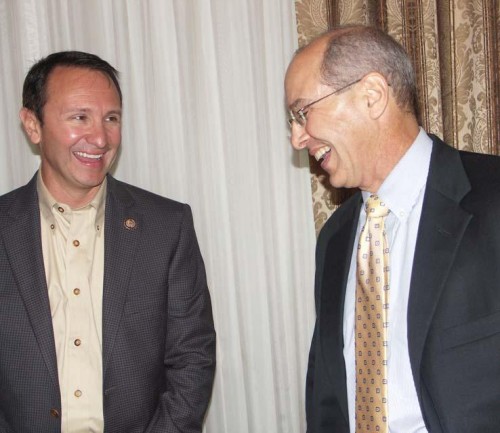
Landry seen as underdog to Boustany
February 7, 2012Joseph Clovis Autin
February 9, 2012Gov. Bobby Jindal is right to try to fix our public schools. His proposal to put the best teacher in every classroom by changing the way we hire, fire, promote and pay teachers is critical.
We need a teacher evaluation system that looks like somebody designed it on purpose. Only a handful of public officials are still around who were serving in 1989 when Gov. Buddy Roemer made the last attempt to reform our system. I’m one of them, and I remember the venom, the bitterness and the divisiveness of those days. Roemer’s legislation ended up before the Louisiana Supreme Court (I helped argue the case), which ultimately ruled in his favor, but the causalities were high, and it undermined the program’s success.
We learned a few lessons from that experience that might be helpful now as the debate begins over Gov. Jindal’s attempt.
The first lesson we learned was that teacher quality is one of the few ingredients of good public schools that government can control. Parental involvement is also important, but it’s hard, if not impossible, for government to involve parents in their kid’s education if they are unable or don’t want to. Data indicates that 49 percent of Louisiana’s children will be born into a single parent family this year, leaving them much more at risk to growing up poor, undereducated, underemployed or in jail. Of course, some of these kids can, and will, mature into productive citizens because of the Herculean efforts of their parent, but the odds are against them from birth, and just about everything government has tried to better those odds has failed.
The moral of the story is to concentrate on what you can control: teacher quality.
The second lesson we learned was to consult and listen to the teachers and principals in designing a teacher evaluation program. The teachers and principals in every single public school in Louisiana know who among their peers is doing a good job and who is not.
Design a system to harness their input and knowledge and it will succeed.
I’m not saying that what politicians, good government groups, civic leaders, school boards and teacher organizations think doesn’t matter. Most of these groups care deeply about elementary and secondary education, and deserve a seat at the table. But at the end of the day, if the rank and file teachers and principals don’t buy into the new evaluation system n if they don’t think it is fair n it is destined to fail, no matter how many bills the Legislature passes.
The final lesson we learned from the teacher evaluation effort in 1989 was to be careful what you say. Teacher quality is a subject steeped in emotions-anger, fear, pride. It is a subject about which people feel passionately (a good thing) and about which reasonable folks disagree.
Name calling, demeaning remarks, incendiary words and sweeping generalizations that don’t respect the nuances of the political and socioeconomic factors that contributed to the deterioration of public education in America are not helpful. Think before you speak.
Louisiana has the rare opportunity to lead this country in developing ideas that lift up the teaching profession, change the lives of our children, and help Louisiana have a brighter future. Lessons learned from the past can help us succeed.





